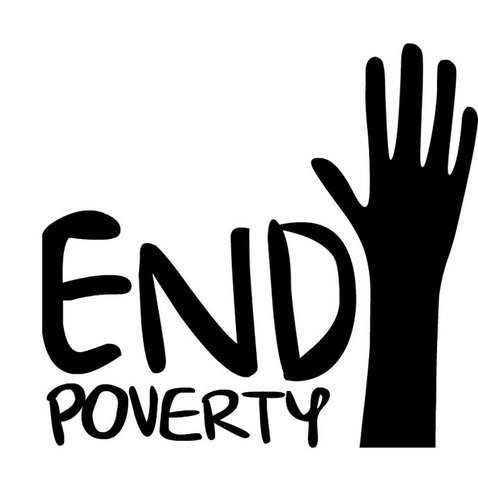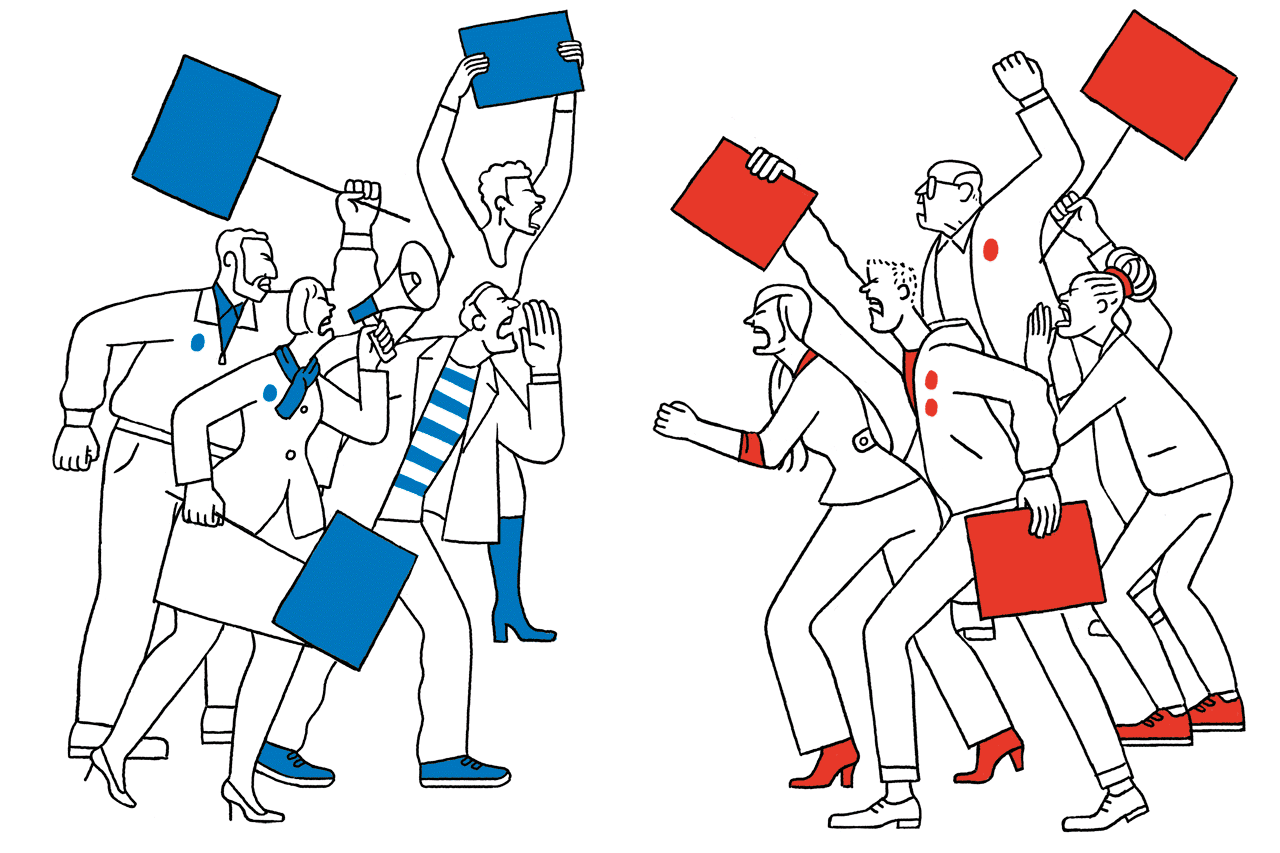There is a popular narrative on the left that Republicans hate poor people. Supposedly, we believe that when people are poor, it is their fault, and we believe poor people are moochers.
Before refuting this popular narrative about the political right, we need to make three distinctions. The first distinction is the difference between being poor, and staying poor. The second is the difference between alleviating poverty, and alleviating suffering. The third distinction is the difference between receiving help, and mooching.
 I was born the third child of relatively young teachers, who had not yet earned tenure. My mother, with three young children, took a couple of years off of work. My father, in the meantime, started working summer school, in addition to his normal job of teaching history in high school. We were poor enough for those couple of years to be on food stamps. Once my mother started working again (she taught high school English, and high school drama), conditions improved. By the time my parents retired (at the relatively young age of 55), they lived comfortable, middle class lives, and were perhaps even a little bit upper middle class. My parents are an American success story.
I was born the third child of relatively young teachers, who had not yet earned tenure. My mother, with three young children, took a couple of years off of work. My father, in the meantime, started working summer school, in addition to his normal job of teaching history in high school. We were poor enough for those couple of years to be on food stamps. Once my mother started working again (she taught high school English, and high school drama), conditions improved. By the time my parents retired (at the relatively young age of 55), they lived comfortable, middle class lives, and were perhaps even a little bit upper middle class. My parents are an American success story.
I, myself, was seventeen when I struck out on my own. I worked for $3.35 an hour at McDonalds, and was by all accounts poor. I was poor for a number of years before my life started to improve.
The Brookings Institute has found that if you do three simple things, you will make it at least into the middle class, no matter how poor you start out. Those three things are: graduate High School, avoid having children out of wedlock, and hold a job. If someone does those three things, it will be hard for them to stay poor, even if they want to.
Being poor is not always a choice, but staying poor is.
Once one accepts that staying poor is a choice, we can move on to the second distinction, which is understanding the difference between alleviating suffering, and alleviating poverty. Suffering is immediate, and temporary. Poverty has the potential to be long term. Republicans don’t mind alleviating suffering, but we want to do so in ways that help people to get out of poverty, and we abhor programs that make it harder to get out of poverty. Democrats, on the other hand, try to ‘solve’ poverty through government dependency, which can make poverty easier to live with, but cannot get people out of poverty. To put this another way, Republicans are trying to eliminate both suffering and poverty, whereas Democrats are only trying to reduce the suffering of those who are in poverty.
This takes us to our third distinction, which differentiates receiving help from mooching. Those who are on welfare for life, and who are physically capable of work but who are not working, are mooching. Those who are doing what they can to support themselves, and who fall short of being able to fully do so, are not mooching, no matter how much help they may receive. I know of no Republicans who do not want to help people who do what they can to support themselves, but who fall short of being able to fully do so. Few, if any Democrats believe that we should have work requirements for welfare recipients, and in fact if people on welfare start to work, the welfare is removed, making it very difficult for someone on welfare to ever get off of it. Shouldn’t we have programs that gradually reduce as people earn more, and that reduce in such a way that there is always a tangible benefit to earning more through work? Self sufficiency must be a part of any solution.
Republicans believe that self sufficiency is the best solution to poverty. Democrats, by action if not belief, prefer government dependency. Self sufficiency can be a harder sell than is government dependency, and that is particularly true with those who are already dependent. The fact of the matter is that many of the people on welfare today really are moochers, whether they are called that or not, and as a result any party that wants to help people become self sufficient can be accused of being mean to moochers. Nobody wants to be called a moocher, even when they are mooching, so this charge against Republicans often sticks, even though what Republicans really want is to help people to better their own lives.
A related charge is that Republicans are pro-rich. There is some truth to this, but really, Republicans are only pro-rich to the degree that Republicans don’t want to stop people from becoming rich. We would like everyone to be reach, but we realize that everyone can’t become rich off the earnings of other people. Once again, self sufficiency must be a part of any solution.
Democrats want to raise income taxes, supposedly to hurt the wealthy, but do income taxes hurt the wealthy? The wealthy make the vast majority of their money on investments rather than income, so income taxes don’t hurt those who are already wealthy. Income taxes, rather, hurt those working on becoming wealthy. Since Republicans believe that becoming wealthy is a good thing, we certainly don’t want to use income taxes as an artificial barrier against economic advancement. Democrats, on the other hand, consistently penalize success. The very concept that allowing people to keep more of what they earn ‘hurts the poor’ is based on the assumption that the poor can’t earn more themselves, which is a faulty assumption. Republicans are more than happy to encourage economic initiatives in low-income areas, even when some of that incentive involves public money. We want the poor to have access to jobs. Democrats want to give more in direct government handouts to the poor, with the catch that the poor cannot also work.
The purpose of taxation should be to fund government, and tax rates should be set to maximize long term tax revenues. If we tax at too high of rates, people look for ways to reduce their reportable incomes, such as by putting money into municipal bonds (where there are no capital gains taxes), or by leaving income in off-shore bank accounts (where it cannot be taxed until it is brought into the United States). When the low growth in off-shore bank accounts and municipal bonds is higher after taxes are applied, than are other forms of investments, people shift investments, and their incomes, into havens. When the low growth in off-shore bank accounts and municipal bonds is lower, after taxes are applied, than are other forms of investments, people shift investments, and incomes, into higher growth areas, like stocks, where they get taxed. We get no tax revenues on income that is not taxed, so having punitive rates that push income into tax havens does not help raise tax revenues.
The concept of ‘hating’ the poor, incidentally, is somewhat of a misnomer. Once the word ‘hate’ is thrown out there, the question becomes emotional rather than rational. From a rational perspective, we can see what the parties think by looking at the kinds of programs they support, and the impact of those programs on their base. By supporting eventual self-sufficiency, Republicans are encouraging people to migrate from being poor to being at least middle class, and perhaps even rich. This makes sense, given that people in the middle and upper income classes are more apt to vote Republican than are poor people, and that the Republican Party only grows when peoples lives improve. Democrats, on the other hand, support programs that make poverty easier to live in, while also making people dependent on government, such that they stay poor. This too makes sense, given that should Democrats eliminate poverty, many of the newly self-sufficient voters would suddenly become Republicans.
If ‘hate’ is a word that must be used, we should say that Republicans hate poverty, whereas Democrats hate wealth. Republicans want to eliminate poverty, whereas Democrats want to eliminate wealth. I’ll leave it to the reader to decide which of those two things sound more hateful.
As always, if you like our message, please help to spread that message, but clicking one or more of the share buttons below.

























[…] importantly, we can solve things like generational socio-economic disadvantages. We can break down tribalism within our […]
[…] on the difference between ‘doing good,’ and ‘feeling good,’ you might enjoy Democrats, Republicans, and Hate for the Poor. For an overview of the Minimum Wage (and how best to replace it), you might enjoy The Case Against […]
[…] on the difference between ‘doing good,’ and ‘feeling good,’ you might enjoy Democrats, Republicans, and Hate for the Poor. For an overview of the Minimum Wage (and how best to replace it), you might enjoy The Case Against […]
[…] Another way to look at this difference is to see that conservatives want to eliminate poverty, whereas liberals want to make poverty more comfortable to live under – and want to put more people into poverty. This concept is discussed in more detail in the article, Democrats, Republicans, and Hate for the Poor. […]
Democrats (and liberals in general) are all about “good intentions.” For them, it does NOT matter that their policies harm the poor, and create more poor. “Good intentions” are all that matter — NOT results.
The motto for the Democratic Party should be “Don’t Look Back.” Don’t look back and check out the CONSEQUENCES of policies enacted.
CA is run by Democrats with (supposedly) good intentions. It’s the “Workers’ Paradise.” But adjusted for the government-imposed high COL, CA has easily the highest poverty rate in the nation. Moreover, CA has a “GINI coefficient” (the measure of income inequality) that is 4th worst in the nation.
Do progressives really care about these injustices? Only to the extent that they blame it on conservatives, who have little say in California policy making.
As I said, “Don’t Look Back.”
I think you are absolutely right, but I think it is rooted in something more than that. Liberals are generally short-term thinkers, going back to Keynes’ statement that “in the long run we’re all dead.” The belief structure here is one of a very active government manipulating and controlling the economy (and the people within it) based on short-term needs, and changing direction before the long-term impacts appear. If a long term impact pops up that seems negative in some way, the very active government can then fix that with a short-term remedy.
To a conservative, this looks like an economic version of whack-a-mole, except that in the liberal version of the game, each mole the knock down causes four more to spring up.